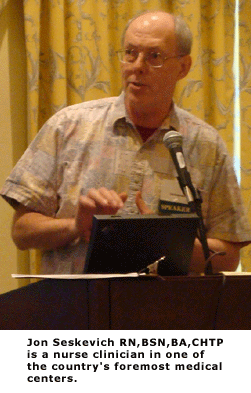Question: What does “Integral” mean? What’s the difference between integral, integrative, holistic, mind/body, wellness, etc.?
My answer: As I use the term, “integral” refers to any approach that brings together multiple perspectives in an effort to address the multiple dimensions of human life. In this sense, the term “integral” is basically interchangeable with “integrative” and “holistic.” As a matter of personal preference, I like the term “integral.” I graduated from the California Institute of Integral Studies, which is grounded in the Integral Psychology of founder Haridas Chaudhuri, and I’m also a big fan of Ken Wilber’s “four quadrant” integral theory.
In general, however, the terms integral, integrative, holistic, mind/body, and wellness are all meant to convey “whole person” approaches to health and healing, as opposed to the disease-focused system associated with conventional medicine.
Keeping in mind that most, if not all, healthcare practitioners—whether in conventional settings or integrative health centers—would claim to be treating the “whole person,” I agree with the following distinctions Dr. Elliott Dacher makes between conventional, complimentary and alternative, integrative, and integral approaches:
[Article featured on Davi Nikent.org]
The evolution of medicine in modern times has been from allopathic or conventional, to alternative and complementary, to integrative and now to integral.
These can be defined as:
Conventional: The traditional approaches of medical science.
Alternative and Complementary: Healing approaches outside of the mainstream of western medical science.
Integrative: The merging of conventional, alternative and complementary approaches under a single “umbrella” of care.
Each of the preceding approaches, as they are currently and predominantly practiced in western culture, primarily focus on the biological or physical aspects of healing, emphasizing the role of professionals and their specialties, remedies and therapies in the treatment of physical disturbances. It is the recognition that these approaches have not addressed the whole person and therefore limit what can be achieved in health and healing that has driven the development of an integral approach.
Integral: The expansion of the health and healing process to address the entire range of the human experience: biological, psychospiritual, relational and cultural. All are seen to contribute to the disease process and to health and healing. The expansion of consciousness, the inner aspect of healing, rather than the outer “medical tool kit” is a central aspect of the integral approach. The aim of integral medicine is broader than all preceding approaches to health and healing. The aim is to gain freedom from suffering and to experience the flourishing of the full potential of our humanity – the natural arising of an inner peace, wholeness, love, compassion and joy – that can sustain itself throughout the life cycle irrespective of the presence or absence of disease. This can only be achieved with an integral approach to healing that considers all aspects of the human condition.
From the Practitioner’s Perspective:
As a conventional practitioner I would approach the individual from the perspective of the physical symptom and disease, limiting my diagnosis and treatment options to those of western science. As an alternative and complementary practitioner I would approach the physical symptom and disease from the perspective of my particular training (acupuncture, chiropractic, nutritional, etc.) and formulate a diagnostic and treatment plan in relationship to my specialty. An integrative care approach combines conventional and alternative approaches to offer a broader spectrum of choices when treating the individual’s symptoms or disease. As an Integral practitioner I would approach the patient first looking at their entire life circumstance – biological, psychosocial, relational and cultural – focusing on the whole person rather than the disease, symptom, or my particular specialty, my diagnosis would include concerns in each of these areas of life and my healing plan would cover the broad range of needs and possible approaches necessary to move towards a larger health of the whole person. Because as an integral practitioner my vision is broader so also is that which can be achieved, a human flourishing vs. a physical healing. As an integral healer I must be in a transformative process myself as the driving force for a larger healing is not merely biological knowledge but an understanding and growth into a larger consciousness. An expanding consciousness is a key ingredient of an integral process.
Elliott Dacher, MD
March 2005
 In case you missed it, Dr. Tracy Gaudet was the guest on yesterday’s installment of The People’s Pharmacy on NPR. Dr. Gaudet is the Executive Director of Duke Integrative Medicine, and she was the inspirational leader of the Integrative Health Coach Professional Training Program that I completed in May. Click HERE to listen to this great discussion.
In case you missed it, Dr. Tracy Gaudet was the guest on yesterday’s installment of The People’s Pharmacy on NPR. Dr. Gaudet is the Executive Director of Duke Integrative Medicine, and she was the inspirational leader of the Integrative Health Coach Professional Training Program that I completed in May. Click HERE to listen to this great discussion.

 It’s been about three weeks since Module Three, which means it’s only a few weeks until the fourth and final module. Things are happening so fast that it’s hard to keep track of what happened during Module Three, what happened in the weeks since, and what’s happening in my own head from moment to moment. Off the top of my head:
It’s been about three weeks since Module Three, which means it’s only a few weeks until the fourth and final module. Things are happening so fast that it’s hard to keep track of what happened during Module Three, what happened in the weeks since, and what’s happening in my own head from moment to moment. Off the top of my head: